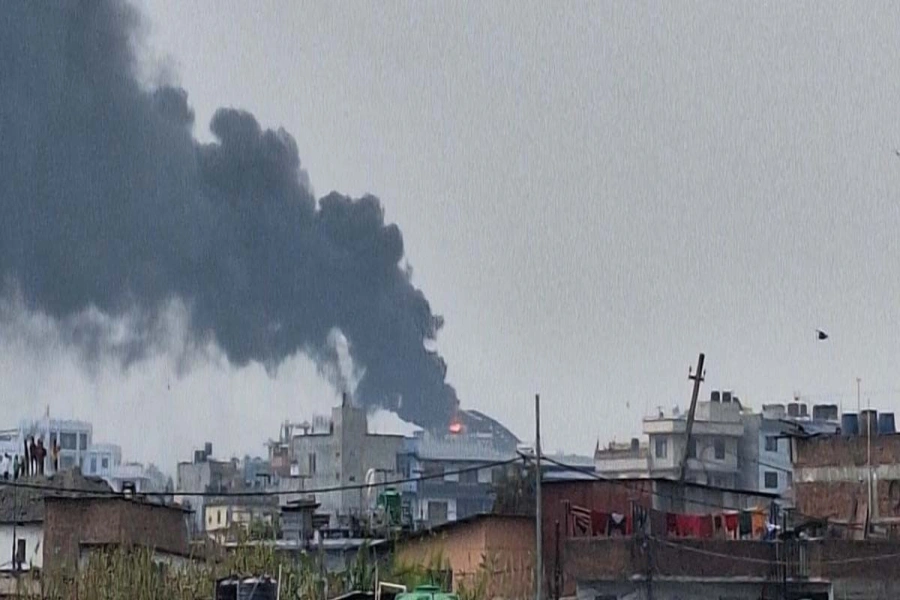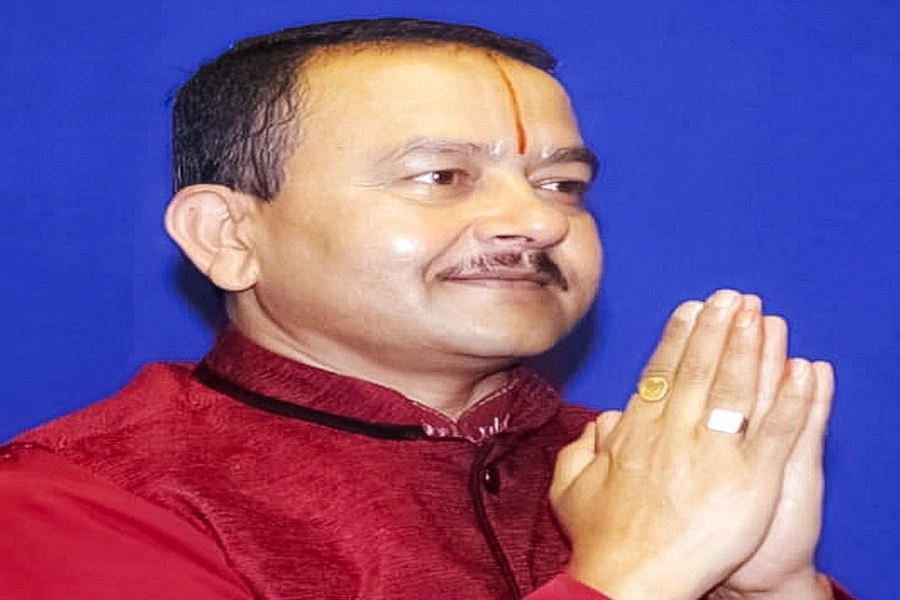NEW DELHI, Sept 10: G20 leaders papered over deep divisions on the war in Ukraine and tackling climate change Saturday, avoiding direct criticism of Moscow and any concrete pledge to phase out polluting fossil fuels.
Leaders of the grouping, which brings together Russia as well as some of Ukraine's most ardent backers, have struggled to agree on much, in particular about the 18-month-old invasion.
But facing a major diplomatic embarrassment, hosts India had pressed members to agree a common statement at a two-day summit in New Delhi.
With Vladimir Putin skipping the summit to dodge political opprobrium and the risk of arrest on war crimes charges, the G20 denounced the use of force for territorial gain but refrained from direct criticism of Russia by name.
"There were different views and assessments of the situation," the leaders' statement said.
European nations and the United States had pressed for the G20 not to water down its earlier condemnation of a war that has caused food and fuel price spikes worldwide.
With long-time Russian ally India in the G20 chair, Ukraine's allies appeared to have failed in that bid.
Nonetheless, a top White House official said they were happy with the outcome.
SHIFT for Our Planet: Youths urge authorities to make climate j...

"From our perspective, it does a very good job," US National Security Advisor Jake Sullivan told reporters.
He said the G20 statement stood up "for the principle that states cannot use force to seek territorial acquisition or to violate the territorial integrity and sovereignty or political independence of other states."
With Putin repeatedly raising the spectre of the conflict turning thermonuclear, Sullivan also pointed to the G20's agreement that "the use of nuclear weapons is inadmissible".
- 'Phasedown' -
On climate, too, the G20 found minimal common round.
With major fossil fuel producers including Saudi Arabia, Russia and Australia -- and coal-dependent nations such as India and South Africa -- around the table, there was no overarching commitment to phase out the polluting fuels.
Such a measure was deemed "indispensable" by the United Nations just a day earlier to achieve a net-zero goal.
Instead, the G20 countries pledged to triple renewable energy sources by 2030 while committing only to a "phasedown" of coal "in line with national circumstances".
The G20 countries account for 85 percent of global GDP and a similar amount of global climate-warming emissions, making action in the forum crucial to real progress.
The backdrop to the talks could hardly be starker: the European Union's climate monitor has said this year is likely to be the hottest in human history, with Brazilian President Luiz Inacio Lula da Silva calling it an "unprecedented climate emergency" on Saturday.
On reaching the final agreement, Indian Prime Minister Narendra Modi thanked leaders for their "hard work" and banged a ceremonial gavel to adopt the declaration.
Modi had a heavy personal investment in the success of the summit, which he has billed as India's diplomatic coming of age and has used to boost his domestic standing ahead of elections next year.
In another win for Modi's efforts to portray his country as a voice for the Global South, the African Union earlier joined the G20 to give the continent broader representation.
"With everyone's approval, I request the African Union head to take his seat as a permanent G20 member," Modi said, claiming it turned the grouping into a "people's G20".
The African Union at full strength has 55 members but six junta-ruled nations are currently suspended. Collectively, it has a GDP of $3 trillion with some 1.4 billion people.
"As a continent, we look forward to further advancing our aspirations on the global stage using the G20 platform," Nigerian President Bola Ahmed Tinubu, who is at the summit, posted on X, formerly known as Twitter.
The G20 was conceived in the throes of the 2008 financial crisis as a way to manage the global economy but finding consensus among members has been increasingly difficult in recent years.
Even the very relevance of the grouping was called into question ahead of the summit, with Chinese President Xi Jinping opting to stay at home -- a move widely seen as a deliberate snub.
- Infrastructure plan -
Europe, the Middle East and India were to unveil plans to more closely bind three regions that account for about a third of the global economy, plans that represent an alternative to China's vast investment in global infrastructure.
Washington, Saudi Arabia, the EU, the United Arab Emirates and others will sign an agreement on the sidelines of the G20 summit to explore the scheme, officials said.
The agreement comes with Washington actively engaging with Riyadh, a major oil producer and security partner, as it encourages the kingdom to normalise ties with Israel.
The plans will include data, rail, electricity and hydrogen pipeline links, EU officials told AFP.






-1200x560-1772467693.webp)































